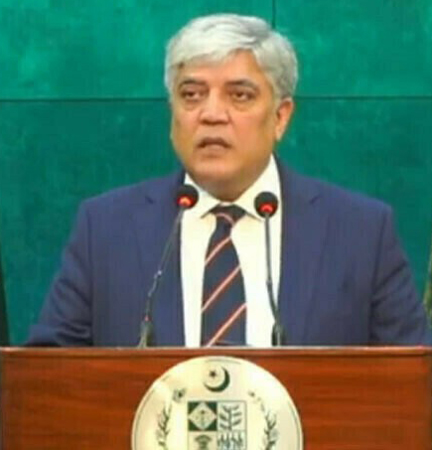 Pakistan’s Foreign Office has dismissed a bill introduced in the United States Congress targeting Pakistan, calling it an isolated act that does not represent the overall state of bilateral relations.
Pakistan’s Foreign Office has dismissed a bill introduced in the United States Congress targeting Pakistan, calling it an isolated act that does not represent the overall state of bilateral relations.
“We are aware of the bill introduced in the US Congress. It reflects the opinion of an individual and not the broader US-Pakistan ties,” Foreign Office spokesperson Shafqat Ali Khan said during a weekly press briefing on Thursday.
He expressed hope that the US legislature would take steps to strengthen relations between the two countries, despite the bill.
Khan also criticised recent US sanctions on Pakistani commercial entities, terming them unilateral and without evidence.
Commenting on the issue of Pakistani journalists allegedly visiting Israel, Khan reiterated that Pakistani passport holders are legally barred from travelling to Israel. “There has been no change in Pakistan’s policy,” he added, clarifying that any such visits were made by dual nationals.
On the Russia-Ukraine conflict, the spokesperson welcomed the recent ceasefire agreement, expressing hope it would lead to lasting peace.
He noted that Pakistan maintains good relations with both countries and consistently advocates for dialogue.
Regarding recent diplomatic engagements, Khan said that Sadiq Khan’s visit to Afghanistan included high-level discussions on cross-border issues, including railway connections and border infrastructure.
Earlier, two US lawmakers have introduced a bipartisan bill in the House of Representatives seeking sanctions against Pakistani state officials over alleged human rights violations, including the “persecution” of former prime minister Imran Khan, according to US media.
The bill, titled the Pakistan Democracy Act, was introduced by Republican Congressman Joe Wilson of South Carolina and Democratic Congressman Jimmy Panetta of California. It has been referred to the House Foreign Affairs and Judiciary Committees for review.
The proposed legislation calls for sanctions to be imposed on Pakistan’s army chief within 180 days if the country fails to take steps to improve its human rights situation.
The bill aims to invoke the US Global Magnitsky Human Rights Accountability Act, which permits the US to deny visas and entry to individuals accused of committing human rights violations.
It also directs the US government to identify and sanction individuals allegedly involved in the suppression of political opposition in Pakistan.
The president would be granted authority to lift the sanctions if Pakistan ends military interference in civilian governance and releases all “wrongfully detained political detainees.”